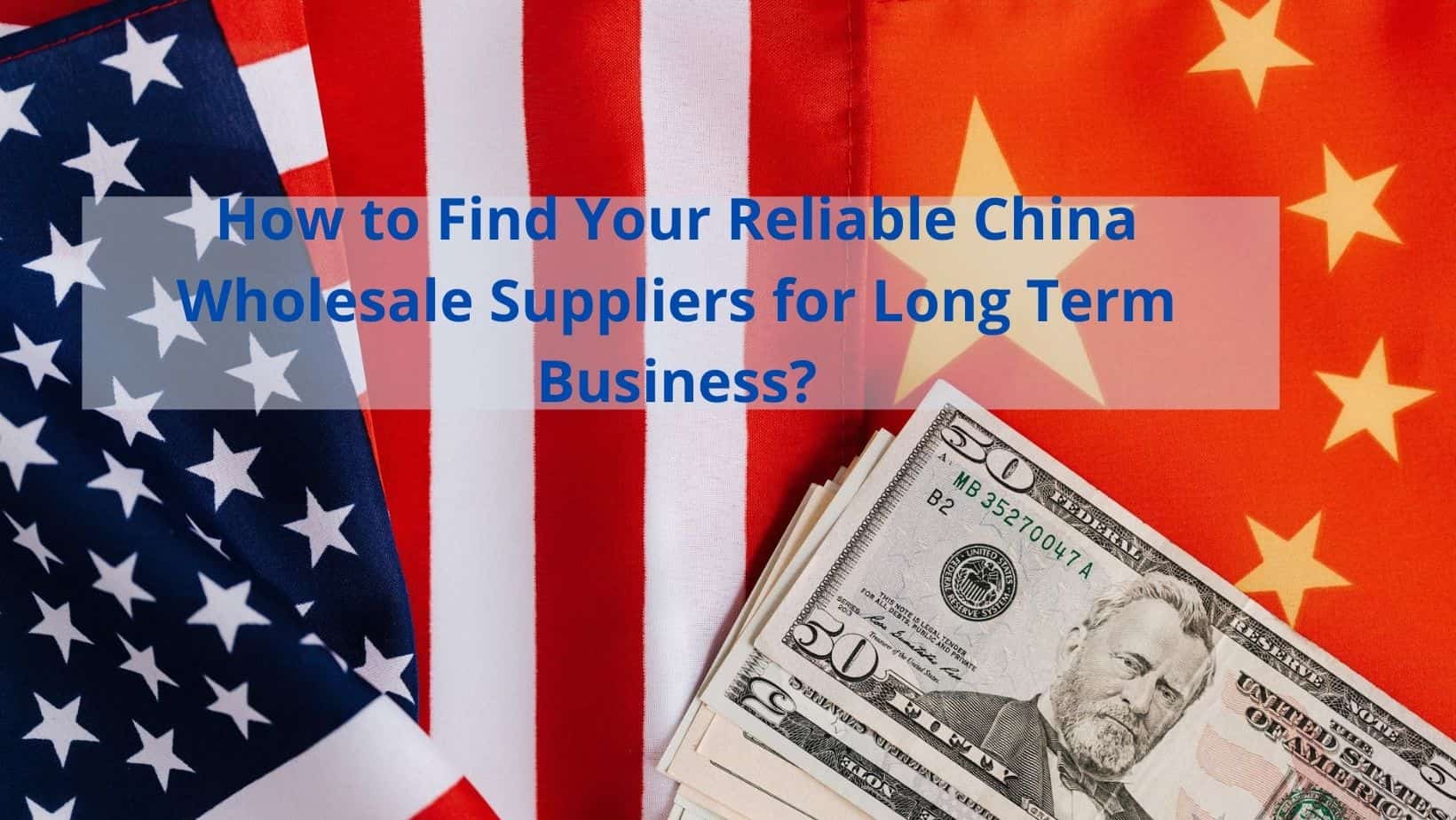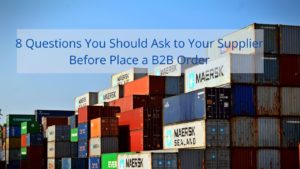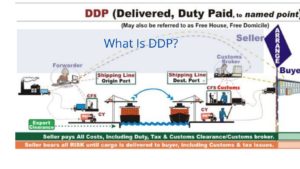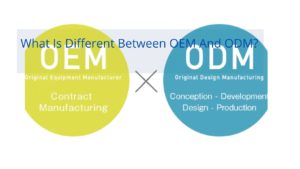How to Find Your Reliable China Wholesale Suppliers for Long Term Business?
![]() Leiz International has enough experience and knowledge to help you to find Reliable China Wholesale Suppliers
Leiz International has enough experience and knowledge to help you to find Reliable China Wholesale Suppliers
![]() Leiz International is familiar with the communicate to the Reliable China Wholesale Suppliers
Leiz International is familiar with the communicate to the Reliable China Wholesale Suppliers
![]() Leiz International worked in the International trading industries for years,helped more than 100 clients to get what you need and find the Reliable China Wholesale Suppliers for them
Leiz International worked in the International trading industries for years,helped more than 100 clients to get what you need and find the Reliable China Wholesale Suppliers for them


How to Find Your Reliable China Wholesale Suppliers for Long Term Business?
Every company has a different business structure and different business needs. There are also individual needs. So, the suppliers your business needs will also vary depending on your unique business model and the size of each stage. So, finding different China Wholesale Suppliers allows businesses to adapt to the differences in their companies, and obviously, finding suppliers varies.
Although the import business is somewhat complex and stressful, reselling Chinese products can be highly profitable. However, to do business with a Chinese manufacturer, we strongly recommend hiring a Chinese sourcing agent. Although reliable ones can be hard to find, it is worth the effort.
In the past few years, we have helped many people who want to import from China. Customers often ask us how to find a reliable Chinese supplier. Frankly, we have selected 1 or 2 reliable suppliers out of 100 Chinese suppliers. I don’t deny that it is a real headache. But at the same time, we have gained a lot of experience in dealing with suppliers.
I felt the need to write an article to share my personal experience and the practical ways to find Chinese wholesalers. Finding suppliers in China is a big topic, so I would like to discuss it in several sections. I promise you will not be disappointed.
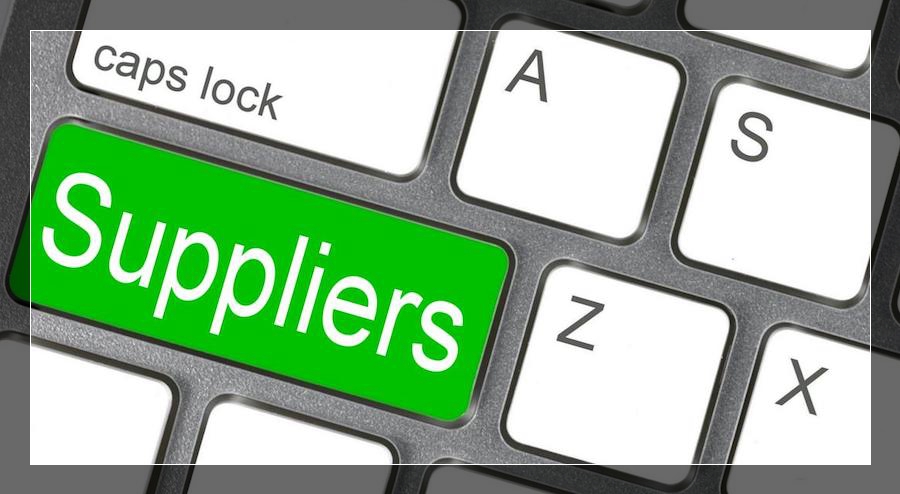
Why should I source from China?
Because the Chinese economy is growing and production costs are meager compared to other countries. An excellent sales opportunity for you!
By buying goods directly from China in your country, you get a lower price per unit and can earn a high profit in your own country.
Let’s take an example… Apple (one of the wealthiest companies in the world, maker of the iPhone and iPad)… Apple started with an all-American assembly plant that cost only $40. However, they were also addressing efficiency issues that led to losses. So they realized that they had to act differently (and faster) to meet customer demand, and of course, to remain a profitable company.
So, they partnered with Chinese fastener manufacturers because China has the infrastructure to make the products Apple needs. On top of that, Apple can make iPhones at a manufacturing cost of $8 per unit!
There are a lot of facts, opinions, and misinformation on this issue. Consider purely from a business perspective, for example, why China is an attractive manufacturing destination and why many companies are still buying factories there.
Supplier basics: China has a large supplier base. While China imports large quantities of molecular components and materials from abroad, many of China’s consumer goods are assembled in factories. For example, China offers an extensive manufacturing network for various industries, clothing, textiles, consumer goods, plastics, toys, automotive products, and laser sourcing. This allows the country to realize economies of scale as larger clusters of factories are surrounded by supporting factories (considering materials, sub-assemblies), thus helping to reduce costs per factory and increase the efficiency of the supply chain.
China’s infrastructure (roads, ports, bridges) is also very well developed and has established factories. It is also about improving the efficiency of freight transportation. If you are looking for a product manufacturer, you will most likely find it in China. For your company’s contract manufacturer, this is an issue to be explored further.
Increased maturity and capability: In China, many factories have shown significant improvements in manufacturing, efficiency, management maturity, and customer service. The ability to purchase factories that provide value-added services related to design and engineering reduces the overall product development and overall life-cycle costs.
Cost: This is a significant reason for companies to source products from China. The massive cheap labor force in China gives manufacturing a colossal cost advantage. The cost savings in tooling, tooling, unit costs, packaging, and other design and engineering features will be significant and will affect the competitiveness of your business and your products. These cost savings must, of course, be considered in conjunction with quality, shipping, time to market, and overall cost of ownership. If not handled properly, pursuing a low-cost strategy in China will significantly negatively impact your company.
Enter the Chinese market: In recent years, more and more companies have continued to source production and establish factory facilities in China with the primary goal of capturing the tremendous business opportunities presented by China’s economic growth.
Find your company's Reliable China Wholesale Suppliers
We understand when clients complain about finding credible and reliable suppliers. But, unfortunately, some suppliers offer orders in the first batch of orders, while the quality of orders in the second and third orders decreases. This situation threatens the ranking of businesses from these wholesalers.
However, since your business is likely to experience such adverse events, it is no big deal. To get around such circumstances, you have to do some necessary work. The first thing you have to do is to determine your business model. It is essential to find and have a business model that works for you. The next thing is to investigate the market/position you want to sell in. Finally, the focus is on researching and analyzing the competitors in the market.
After you have analyzed the previous steps about your business, you can start buying. To do this, you need to decide how much and what quality your first order should be. The key is to find out a supplier who can meet your business needs.
Producer identification
There is a wide variety of importers. However, they can be divided into three categories.
Importers who sell on other online platforms and marketplaces, and importers who sell independently in their own online/offline stores.
Category1: importer is those who sell goods on eBay, Shopify, and Wish and those who sell goods on the Amazon platform.
Category 2: Amazon FBA sellers.
Category 3: The independent seller is divided into three categories.
Those who specialize in importing specific products, such as auto parts.
Those who buy parts for products have improved.
Exporters who are already in or intend to open local supermarket chains.
For example, supermarket importers such as Carrefour and Luxe.
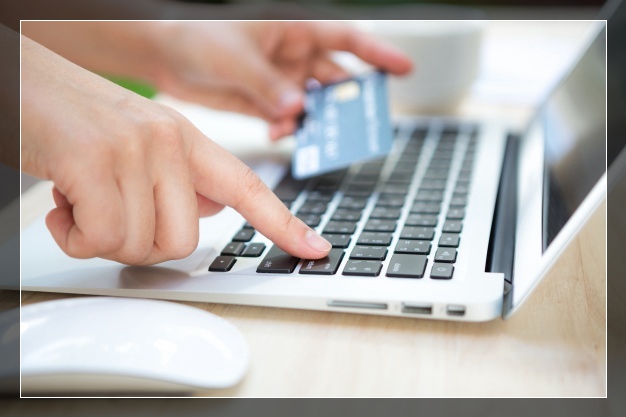
Problems in finding Chinese wholesale suppliers
It’s frustrating to find a supplier in China; either I don’t have enough to start with, or the cost of the product is more than my budget. In addition, some new Amazon sellers are unhappy to tell us: “The listing finally has a stable sale and very happy to place another order with the previous supplier, but the difference in quality between the two batches has made my listing a nightmare with a lot of criticism.
To avoid a similar situation, you must first determine a few things before finding a supplier. First, you should do an in-depth analysis of your business model. Be sure to identify your product market, your niche, and how much you need for your first order. Then, your business will be better served by picking the right supplier for your business.
The three platform providers, eBay, Shopify, and Wish, all have one thing in common. Each store carries a large variety of categories and products, mainly without a fixed niche product or focused on a particular type of product. As a result, they are excellent providers for sellers already familiar with and have tested various product markets. Therefore, they know which products are in good demand and can sell them promptly.
On these e-commerce platforms, large sellers can easily buy a large number of items because the large sellers already have some visibility and bargaining power, have the volume to buy, and have some say in the choice of suppliers.
However, for many small and medium-sized sellers, in the early stages of sales of new product development, sellers are trying to buy items in small quantities as samples to test the market and test potential customers’ acceptance of the products and their feedback, thus resulting in a small initial purchase volume.
Only a small amount of inventory is needed to test each product. Through sales analysis over time, large quantities of stock can be purchased for products that respond well. Therefore, in such a case, should you go directly to the manufacturer for purchasing? Not! It is better to contact some online wholesalers, buy small quantities and do market research. DHgate and Aliexpress are the best places to start.
Yeah, I wouldn’t recommend Alibaba here because the suppliers on Alibaba are usually large orders. The purchase volume for that product must be at least $1000. For example, if you only want $300-$500 or less for your order, trust me, most Alibaba suppliers will not accept that.
Even if you come across a few suppliers willing to work with you, you won’t get the quote you want. Also, if you need some fulfillment services like Shopify, Alibaba is not a good choice because this rather large B2B site will not provide such services. Instead, DHgate, SellingPlace, or some other independent distribution sites are the right choice for you.
Amazon Sellers
Amazon’s FBA wholesale business is profitable as long as it is appropriately handled. One way to maintain profits is through Amazon’s wholesale business model. If you want to become an established and stable seller on the Amazon marketplace, you first need an Amazon FBA wholesaler to fulfill your orders.
But one of the challenges facing this type of business is finding an Amazon FBA wholesaler. There is no shortage of suppliers, but how do you decide that you are buying from the right one?
You’ve done your homework and found a killer product that you can sell on Amazon. But, your work isn’t done! For now, you need to find suppliers who are willing to ship the product at a reasonable price. You also have to make sure it meets the quality standards of the Amazon marketplace.
So, how do you find a suitable supplier? As many Amazon sellers do, will you turn to China, or will you buy from a local vendor? Both have their inherent advantages, and you need to find a supplier that can meet your needs.
How does Amazon FBA work?
Amazon offers two methods of order fulfillment to sellers, the most popular being FBA or FulfillmentbyAmazon. If you choose this fulfillment method, Amazon will take on the burden of picking, packing, and shipping for you. It also takes care of customer service and returns.
Here are the steps to get started, as explained by Amazon.
Create an Amazon selling account.
Log in to Seller Central to install FBA.
Create a product list.
Assign Amazon’s Logistics Inventory List to manage the inventory page.
Get your products ready to send to the Operations Center.
Ship your products to Amazon.
When Amazon is responsible for your performance, your job is to:
- Do product and keyword research.
- Create and optimize your ASIN or product listings.
- Rank and promote your products.
- Manage the Q&A and review sections in the product detail pages.
Add your inventory. Yes, you must be responsible for maintaining a certain amount of stock. However, you can keep them in Amazon’s warehouses or shipping centers, a service offered by Amazon FBA.
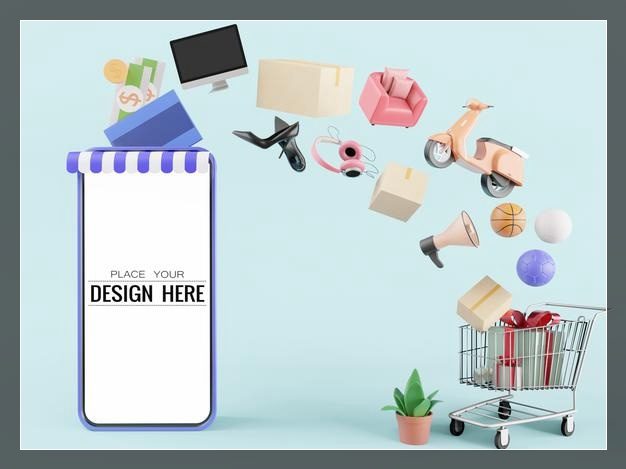
Importers who specialize in importing specific products, such as auto parts.
This section is for importers who need certain industrial products, such as auto parts. Unlike consumer products, these products require knowledge of various technical parameters, materials, etc., to assess their quality. In addition to this, every product is different in some way, making it more daunting to inspect the product by appearance alone.
Whether you choose to make your purchase from a web-based supplier or use an acid cleaner, experience and expertise in classifying products are very important in this case. Below I’ll detail the pros and cons of both buying methods so you can make the right choice.
You can choose to browse Alibaba for relevant suppliers or handle shortlisted suppliers yourself. However, if you have many product lines, you will have to spend a lot of time looking for various suppliers. This work is troublesome. In that case, if you can find a reliable supplier through Alibaba, you can cultivate him as your purchasing agent. Ask him to help you buy the relevant products. The advantage of using this strategy is that you can utilize the services of industry experts and take advantage of their network and resources. You can also save time in finding the products and suppliers you need.
Hiring a purchasing agent is also a good option. However, it is essential to consider the agent’s knowledge of this product category. In addition to this, you need to find a very professional and experienced purchasing agent. A sourcing agent primarily involved in purchasing everyday consumer goods is out of the question, as they will spend more time researching your products. On top of that, an agent is likely to find a supplier you are less than happy with.
There are advantages and disadvantages to both. So how do you weigh these factors to find the best approach for you?
People who enter their own modified product parts.
Some people have their ideas for making and producing what we call innovative products. But the truth is that coming up with an idea and bringing it into the real world is not easy because many times, we haven’t done it yet.
For this reason, it is sometimes much more expensive for innovators to make their products than for large Chinese manufacturers. If you are an innovator who wants to create products based on your ideas, you can go to Alibaba to find suppliers, choose and contact them, or maybe you can visit them in person. I don’t think this is something we recommend handling vendors needing experience, skills, and time.
It’s best to find a purchasing agent who can help you find a reliable one. They can help you bargain, negotiate, translate, and get the best deal at a price you can’t do on your own. You can also find suppliers for the annual international fairs held in China. But for that, you have to travel to China. So you certainly have to have the time and think about the expense.
Importers who are already in or intend to open a chain of supermarkets locally.
Importers have opened local chains and usually offer thousands of goods. While several products can be imported from China, they need to buy various products from China.
However, importers who have not purchased any goods from China can find many problems such as finding suitable suppliers, complying with regulations, shipping, etc. Frankly, you can find your suppliers in China, but trust me, it is complicated.
You have to spend a lot of time finding suppliers for different kinds of products. The best way is to have a single source, so outsourcing is the best option. Large retailers like Walmart, Costco, and Carrefour do not buy from domestic sources but through trading or sourcing companies.
Types of China Wholesale Suppliers.
When dealing with overseas manufacturing, you encounter trading companies/importers, sourcing agents, purchasing agents, agents, wholesalers, and factories. Here’s a look at the different types of suppliers and their differences.
Trading companies/Exporters
They are divided into 2 types of trading companies: low value-added and high-value-added trading company
Low value-added trading company
These companies tend to profit from the actual cost of production and are often involved in a broader range of product categories. The trading department has an office in China and a team of project managers who can help to depend on your products’ complexity. In addition, they can maintain good contact with factories and help them communicate in Chinese.
By connecting buyers and sellers to buyers and sellers, low-value-added trading companies add value to the supply chain. In addition, they often help companies grow their business by bringing in customers, which are also companies with little sales capacity. This facilitates interaction and communication between two remote entities.
They tend to help solve minor problems, improve communications and assist with logistics. However, they are not very good at project management, and they do not have a robust system that can identify problems early and delay production. Moreover, distinguishing a factory from a low value-added trading company can be difficult because some companies will pass themselves off as manufacturers as Alibaba. Typically, these companies consist of 1-5 people, and one sometimes hears people say they have disappeared and interrupted communication.
Benefits: Helps connect buyers with hard-to-find suppliers and provides inexpensive sourcing solutions.
Disadvantages: poor project management skills, high risk of problems, weak quality control systems, and little accountability.
High value-added trading companies.
High value-added trading companies provide enhanced support for supply chain management through a combination of capabilities: supply chain expertise, logistics support – transportation and warehousing, quality control, intellectual property protection, economies of scale that are valuable to both buyers and sellers, financing solutions, distribution channels, and expertise.
This type of full-service trading company is suitable for smaller private label businesses that do not have experience in product development and demand a small number of products and some larger companies, even some with offices in China.
For example, larger companies may not have the bandwidth or experience in new product categories and therefore may need help establishing supply chains within such areas. Full-service trading companies benefit from economies of scale, making the cost of small volume projects more competitive. With strong project management and buying power, projects move smoothly, even during stressful times like the Lunar New Year.
Benefits: Add value to the supply chain, reduce risk, increase the number of potential producers, consolidate economies of scale, and reduce services.
Disadvantages: Value must be placed on additional services. Otherwise, the extra cost is not justified.
When talking to low or high-value-added trading companies, the following factors should be considered.
Technical support: Do they have technical expertise or engineers? Many trading companies are only concerned with price and ignore the quality of their products. Therefore, as soon as a problem occurs, they are usually non-existent. Lack of expertise can lead to mistakes, and mistakes and misunderstandings can lead to serious quality problems.
Production transparency: Are the factories these trading companies work with transparent and involve you in the selection process. Are the factories they work with audited and require relevant reports from the audited partners.
Quality control: Check that suitable quality control systems and procedures are in place. Ask your trading company if they support delivery and if they provide warranties for the manufacturer. It should be noted that the focus of quality control should be on avoiding problems in the first place before they can be identified.
It is critical that trading companies need sound systems and an independent quality team to manage the program. IP: Counterfeit products are a problem, especially if you are slow to market. Be sure to tell you what they are doing to protect your IP and look for references from your home country’s brands.
Finance: Do they offer financial solutions to assist with first-time and repeat orders? Logistics/Distribution: Have they partnered with a logistics organization like a 3PL provider to help you with deliveries? Are they able to sell and distribute in your country?
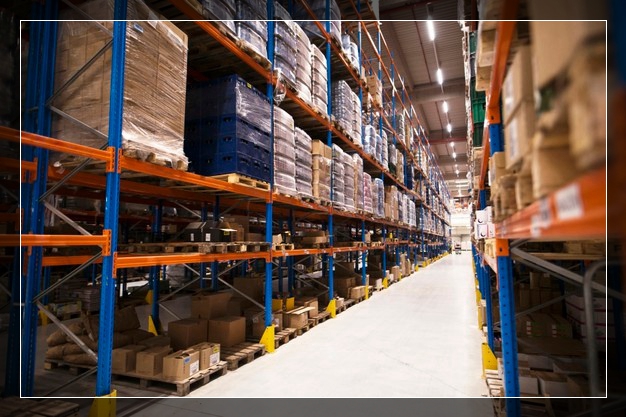
2.Sourcing agents or Buyer
This type of business does not sell its products but concentrates on sourcing services. Enjoy the whole process of import services, including sourcing suppliers, product tracking, quality inspection, and shipping arrangements. The result is that many Amazon sellers tend to purchase agency services. Sourcing agents are more flexible than foreign trade companies. They can help you find any product you want in China. Frankly speaking, sourcing agents are your company’s representatives in China. You just tell them what you want, and they buy it for you.
If you want to bring in a wide variety of products from China, hiring a sourcing agent is the best option. For example, if you’re going to buy three different products from China, you will need to find separate suppliers for each product. In addition, you must compare at least five other vendors for each product to find the best choice. If you were dealing with only three different products, you would see 15 or more vendors.
So, if you sell dozens or hundreds of products, how many vendors will you find doing business with them? In addition to some Amazon sellers, many experienced importers have chosen to be sourcing agents. As an example, our customer is from the Czech Republic.
Before this, he purchased hundreds of thousands of dollars and has purchased $4 million to date. He believes that because we have worked together for a long time, we will maintain his supply chain and put more effort into selling his products. Just as it’s important to find trusted suppliers, it’s also essential to find a good sourcing agent. A great and reliable sourcing agent can help your business achieve continued growth.
Pros: Transparency, integration, risk reduction.
Disadvantages: Incentives are often less coherent (institutional issues), less risk of accountability.
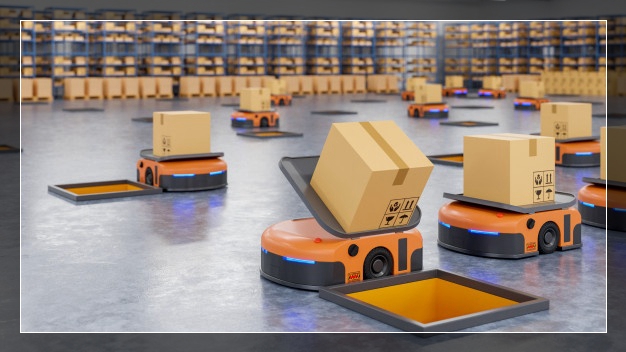
3. Wholesale
Sellers purchase goods in bulk and then sell them in batches. The business deals with wholesalers usually because they have some Western warehouse agents in the United States, Europe, or Australia.
The main benefits of using wholesalers are shorter lead times and reduced minimum orders. Most wholesalers produce off-the-shelf products without any customization other than custom logos and packaging.
When starting a new business process, working with a wholesaler to reduce risk and inventory makes sense. With a mature enough business to source custom products from China, the cost savings will be significant.
Pros: Transparent, low risk, easy to access, can be purchased locally, beneficial for small quantities of products.
Disadvantages: high volume, high price, finished goods.
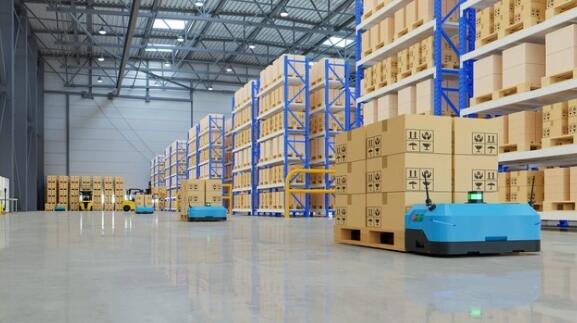
4. Factory
In theory, working directly with a factory is the most cost-competitive option when producing a product. However, it is essential to separate the idea from reality.
The following are challenges to direct factory sales.
Buying: Choosing the right supplier is half the battle. You need to screen many potential suppliers to determine who is qualified and to ensure that you are working at a competitive price. Doing this process correctly requires a lot of time and production experience, including a personal tour of the factory. So, lowering costs takes a toll, and mistakes can be made.
Engineering Management: There are differences in capabilities from factory to factory. Some with international quality services require little to no management, but they will charge you for them. Then some plants are qualified but require a lot of control to ensure you get the results you want. The price is often inversely proportional to the amount of management needed. This type of project management requires experienced and knowledgeable people. Otherwise, it is easy to make mistakes.
Quality control: An essential part of managing a plant is ensuring that quality is met. Doing so requires internal teams, systems, or third-party inspections, but at an additional cost.
Where to find a factory? When you think of factories, companies think of Alibaba. Many of the companies listed on Alibaba are trading companies that sell products they purchase from factories. They often hire English-speaking representatives to meet Alibaba’s new requirements. Alibaba has factories, too.
How do you tell the difference? Quick: ask for the manufacturer’s business license and indicate their company type. The documentation will tell you what kind of company they are registered with. Next, you will need to look at the Business License, or the scope of business of the JúngyíngFánwéi. A translation follows this in Google or Mandarin.
Advantage: direct control relationship with the actual producer.
Disadvantages: more management resources and technology required, increased risk of delays or quality problems, and fewer potential manufacturers.
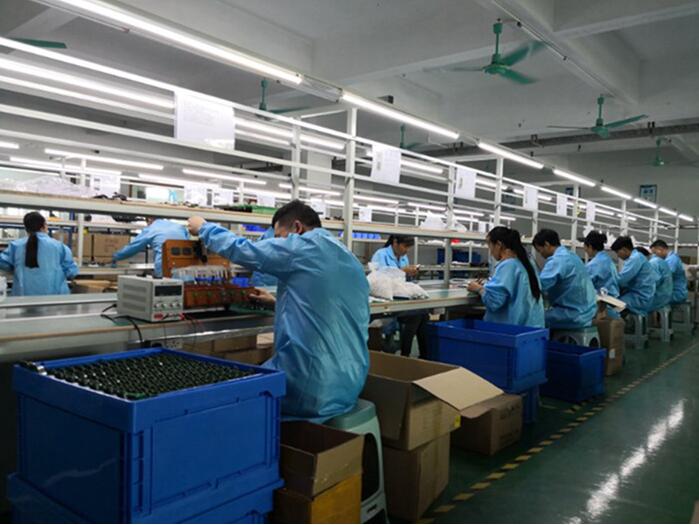
5. Domestic wholesale markets supplier
Another way to find a supplier is to go to China yourself.
You will, of course, have to spend time and budget, but you may be able to find suppliers in China’s wholesale markets that are cheaper than the ones you see on Alibaba or online. For example, you can find a lot of wholesalers in three major cities in China.
You can find them in Yiwu, Guangzhou, and Shenzhen, the three major wholesale cities. You can also find small and large factories near these three cities. What are the main characteristics of the three wholesale markets described below, and what are the products offered? Tips and tricks on how to deal with suppliers in these markets.
Yiwu: This market focuses on small goods and daily necessities.
Shenzhen: you can find everything related to electronics.
Guangzhou: For clothing, luggage, suitcases, beauty products, and adult products, head to Guangzhou.
When doing business in China, the common currency accepted by most suppliers is RBM and not US dollars. Therefore, please do not accept payment by wire transfer.
Most suppliers do not speak English, and you will need a competent interpreter to communicate with them. Find a shipping agent who can take care of shipping your goods beforehand. They can also manage the maintenance of your garments and other import/export work for you.
An easier way is to forget about the three above and find a sourcing agent who can do everything for you.
Advantages: more direct and objective communication with your Chinese suppliers, smoother face-to-face communication and the ability to determine the identity and strength of your suppliers, and perhaps many unexpected gains.
Downside: It is physically demanding for you to plan visits to multiple suppliers, get many samples, catalogs, etc., during your visit to China.
Using an online B2B platform is one of the safest ways to find China wholesale suppliers.
An excellent online directory must reduce risk, make searching easier and navigation faster. The following three online guides meet these qualities.

Alibaba.
Alibaba is the most commonly used site when it comes to finding Chinese suppliers. However, you must be aware that manufacturers, not suppliers, provide most listings. This means that they may not have a website and speak poor English; you must pay for your order by wire transfer rather than a credit card, and in most cases, there is no guarantee that you will receive the product you ordered.
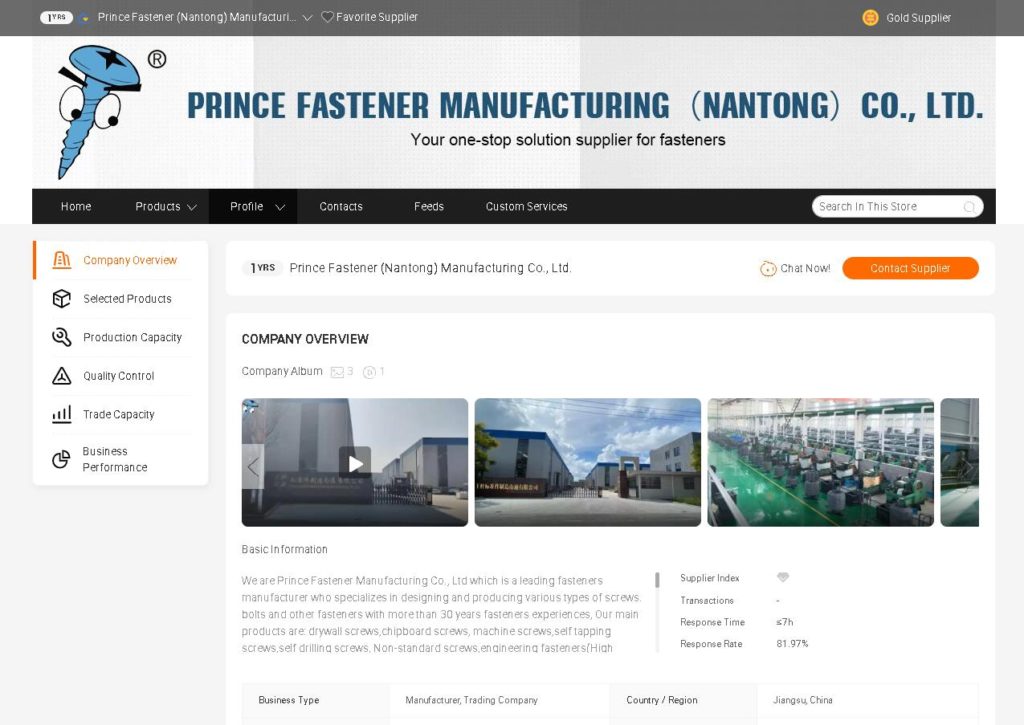
GlobalSources
Assuming you can’t attend the Hong Kong and China fairs, a good second option is to go to GlobalSources.com, which has thousands of suppliers in its database, making your search much more straightforward. You just type in what you want to search for, and then everything related to the level keyword will be displayed. So you can go ahead and make your choice.
Made in China
It was created in 1998 and has become one of the third-party B2B e-commerce platforms. The company is operated by Fox Technology Ltd. and is dedicated to providing the international community with high-end supplier information and products from China. As a result, the company has successfully bridged the gap between buyers and suppliers.
Google has become the most popular search engine in the world. Everyone uses this platform as their first source of information. Although there are pros and cons, this is the best place to find direct sales companies. However, you must be careful to check all the information that Google provides you to verify its legitimacy.
Attend the exhibiton/trade shows
Attend the exhibiton/trade shows will allow you to meet potential suppliers and have actual interactions. You can easily find out their corporate values, products, production capabilities, and quality control processes through these. Canton Fair, Global Sources Trade Show, East China, and International Consumer Electronics Show are the most popular among them.
Canton Fair
This is the best way to find Chinese manufacturers. This event is held twice a year in Guangzhou, China (usually in May and November). The exhibition is one of the largest purchasers in the world.
The exhibition made a big win for the American audience, and the organizers had to divide the presentation into three stages. This phase targets suppliers of electronic products, while the second phase targets providers of consumer products, home décor, gifts, and office supplies, textiles, and shoes. This conference is the size of 218 soccer fields.
Have you tried to find reliable Chinese suppliers through online sites like Alibaba? I’m sure you’ll find it time-consuming. You can only evaluate many companies by browsing through pictures and assessing the quality of their products. This can lead to mistakes. Also, cultural and language barriers can be a challenge for communication. The uniqueness of this exhibition is that it connects master manufacturers and suppliers from all over Asia, and you can easily find suppliers who have the products you want to sell.
It is the supplier’s responsibility to bring samples of their products to buyers and suppliers to feel them in person before they buy. Most of the suppliers you meet at this show have experience doing business with US and European companies, which means exporting to your destination won’t be a problem. Another benefit of participating in the Canton Fair is that most suppliers speak basic English, which means conversations won’t be a problem. Hiring an interpreter isn’t expensive either, at just $15, which you can rent for the day. While attending the exhibition may seem prohibitive, you don’t need to spend any money. Attendance is free, and the cost of living in the area is cheap.

Global Resources Trade Show.
Like the Canton Fair, this exhibition is always a big deal. Twice a year, factory owners from all over the world gather here. However, this event is held before the Canton Fair, so you only have to make one trip to participate in it.
Although Global Sources Expo is different from Canton Fair, it also has many advantages. First, the suppliers who participate in this show are unique, unlike the Canton Fair.
Like Alibaba, GlobalResources is a local search engine for Chinese suppliers. They have an extensive product database that can help you contact manufacturers before attending the event. In addition, GlobalResources has a much more comprehensive range of suppliers, including fashion accessories and electronics. Therefore, if you want to be the best fashion and electronics manufacturer, this program is the best choice.
Another critical factor is the show’s strong focus on education. During the show, a session was held to introduce the basics of running a successful import business. The event was exciting and featured invited speakers who are successful global e-commerce entrepreneurs.
There were very few language barriers at the Global Sources Trade Show. The show is held in Hong Kong, and unlike China, everyone here speaks English which makes communication much more accessible.
How to negotiate with Chinese suppliers?
Have you tried to devise a way to negotiate and then get preferential prices from suppliers? However, if you are too stubborn during the negotiation process, there may be quality problems, or worse, the supplier will not answer your calls.
Document the success of each negotiation to find the right balance. By doing this, you will get the best price and quality. But, at the same time, the supplier receives enough profit to keep the business running and pay shareholders and employees.
If you take the proper steps in the negotiations, the supplier will be happy, and he will undoubtedly be willing to do more deals with you. Read on to find out the steps necessary to achieve a good negotiation process.

Set a target price Before you negotiate a price; you must select a target price. If one does not exist, you can contact individual suppliers and ask, which will help you know the average standard price. Most of the time, when you offer a lower price, the supplier will ask you to provide targets and specifications.
Sometimes, they will ask before sending their first offer. Doing so will help them understand your target; however, you must be realistic in setting price targets. Most Chinese suppliers do not think you will accept the initial offer, which is made in China. What it means is that they want you to engage in negotiations, and they will be surprised if you don’t negotiate.
While you can use how low you push the price as a criterion, there is nothing wrong with giving them your target price and convincing them to accept your offer. Some people may get your request; others will not want to do business. When a supplier sends a quote that exceeds your target price, you can make inquiries, find out why, and share quotes you’ve received from other suppliers. After receiving the first quote, you will likely get that discount if you ask for an immediate price reduction.
The receiving supplier must also receive a significant profit, and only a few importers know that most Chinese suppliers have to face shallow margins. Offering a 10% to 20% discount is not easy unless the initial price is incredibly high. We think the supplier should reduce the cost by 3-5%. By doing this, you can get a good discount, and the supplier can profit from it. Unfortunately, most importers are unwilling to bargain, forcing the supplier to suffer losses. If you are lucky, the supplier will refuse the business and refer you to another company. However, if you are unlucky, they will accept your offer, adapting it to your unrealistic goals and lowering the quality of the products they offer. Our side is sure that you do not want such unpleasant surprises to happen.
Some products may contain different materials, components, and quality standards. For example, it may cost less than $5 to manufacture a zinc alloy watch, but about $20 for a similar design made of 316L steel. If this is the case, you may have cheated yourself on a good deal, which means you paid a very high price for a poor-quality product. In addition, this unit may be faulty. And, the supplier will pay less attention to you because they want to focus on more profitable customers.
Most importers believe that a deal is a deal, so suppliers should produce high-end products in the short term, regardless of low prices. But since every supplier wants to pay for their production costs and bank some of their profits. If he doesn’t understand you when dealing with the problem, he will probably make you weak.
You may feel that you have a long-standing business relationship with your supplier and therefore you should offer you specials. You should note that there are differences in Asia. Both companies need money to make ends meet and to pay salaries and dividends. If a customer pays a higher price, he is more likely to get an excellent quality product to get a better deal. It’s not that bargaining or trying to bargain is terrible, but you can’t try too hard. Does it cost less to sell a low-quality product to a customer than to pay more for high-quality production? To keep costs down, you should measure the impact it has on your business. You can look elsewhere to save money, but the quality of your product must be up to par.
Before negotiating, be clear about your quality needs, and as mentioned earlier, products can be made with different parts and materials. However, doing so requires a fixed product specification; otherwise, you won’t know how reasonable the price is.
For successful negotiations, you need to understand the product description and customization options. Negotiating prices at the right time and place is critical to every human activity. This is also true for business; if you deal at the wrong time, your business will suffer. For example, trying to negotiate after your product is completed is a classic example of bad timing.
Ensure that you negotiate the price before making any commitments. Be prepared to leave, and now it’s time to look at price negotiations from a different perspective. Suppose that when you want to buy, the supplier makes any increase for some reason. In that case, leaving is the best option if the deal is no longer in your favor. We know that it is difficult to start over after this stage. However, the best thing to do is to save money and not get into unfavorable business relationships.
Knowing the cost of raw materials, you will not know the processes, goods, and raw materials used to produce goods. When you talk to suppliers and mention the price of certain raw materials, you will give the impression that you are knowledgeable. Some manufacturers may choose to take advantage of your ignorance, so this factor is crucial.
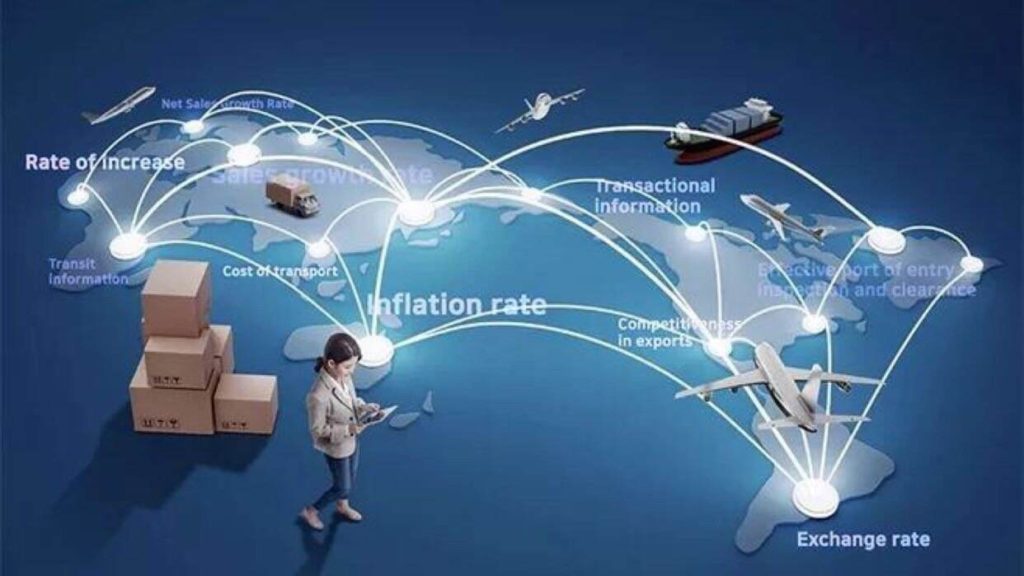
Tips to improve the relationship with your suppliers.
1. In an increasingly globalized world, it makes sense to work with global suppliers. If your suppliers are from different cultures, then you need to understand what to look for. When it comes to business, working with international suppliers is the norm. Make sure you are prepared so that you can build good relationships and solidify your relationship. For example, Chinese culture emphasizes personal relationships (“relations”) as the basis for business relationships.
2. communication, like most relationships, is essential. Paul Noël, senior vice president of sourcing solutions at Ivalua, explains, “touch brings transparency to both sides of the channel to avoid errors or mistakes, such as inaccurate stock quantities or missing orders. To develop communication, there must be channels and structures in place to facilitate effective communication.
Noel continues, “Having the right tools in place to allow internal and external teams to quickly communicate and share documents and other information can help create a more transparent, unbiased dialogue. If your company has the resources, consider setting up a communications network with your suppliers. The JohnTarry (Tarry) community gave Tesco the message: “We have the opportunity to improve communication, share ideas, and continually improve the products our customers love. Favorite products.
3. It’s essential to establish the first impression as quickly as possible, so make sure you start the relationship in the right way. The initial email, the first phone call – take the time to get this done. Many things can affect first impressions. For example, tone of voice is one such thing. 38% of people say it is an essential factor in making a first impression. Here’s a guide on how to improve your own.
4. Understand your suppliers. It’s more effective to work with suppliers if you know them. The more you know, the more you can meet the challenges and build stronger relationships. Harvard Business Review chose Toyota and Honda as an example: “Toyota and Honda believe that they can only lay the foundation for a partnership if they know more about their suppliers than the suppliers themselves. To increase your understanding, try to understand the business position of your suppliers. Know who your investors are and whether they are publicly traded. Also, have a deep understanding of their mission, goals, and ways of working. In the process, you are better able to integrate your business with theirs and grow together.
5. Make sure every team member is working on the same page, even if you recognize the importance of a strong supplier relationship that others in your company may not have. If others can’t make the most of your company, you’ll constantly take two steps backward. To ensure everyone is on the same page, the first step is to establish a prominent role model, and second, hold training sessions to introduce new procedures and principles.
6. Meet your suppliers face-to-face This is an increasingly digital world, and Facebook now has 1.47 billion active users. We spend more time on emails, texts, and phone calls than ever before. If you can take the time to meet with your suppliers, everything will be more memorable. There’s no need to spend a week’s vacation together. But lunch helps to enhance the relationship. Before meeting with them, you try to build a relationship that is not limited to work. Instead of surprising them with roses, we just ask them how their weekend was and maybe send a Christmas card. A close personal relationship can lead to a more robust professional relationship.
7. Be as honest and disagreeable as possible in business relationships. This will be easier to manage if the connection is built on honesty. Dave Blanchard, the senior editor at IndustryWeek, explains, “The best supplier relationship for personal relationships is one that remains honest when normal operations are not. In the case of an important supplier, a company should require immediate notification without penalty. If the problem can be solved honestly, there will be a solution. It is essential to express your desire to have honest communication between suppliers as soon as possible and always be frank for negotiation purposes.
